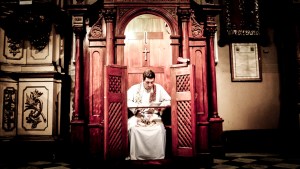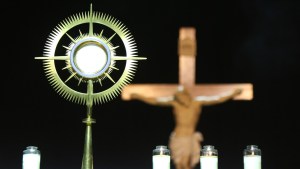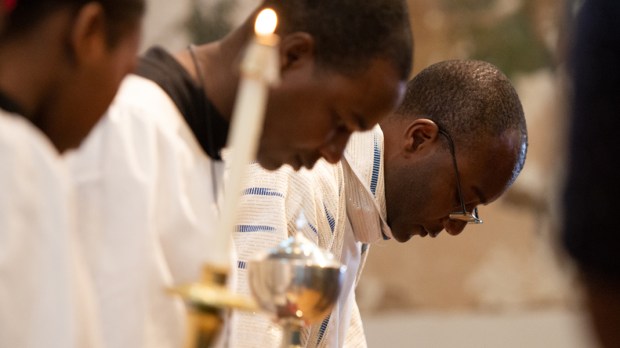The first Christians provide for us a documented living witness of faith as directed by Jesus Christ and His apostles. The writings of the early Church Fathers give insight into early Christian communities.
Upon reading these documents, it is clear that early Christians believed that in order to receive the Eucharist, they must have their hearts readied.
Today, the Church’s teaching on this matter is well spelled out. If you find on your conscience any mortal sin, you are to receive the Sacrament of Confession before receiving Communion.
Read more:
What is a mortal sin?

Read more:
How to go to confession, a step-by-step guide
Here are eight quotes from the first centuries of Christianity to remind us of the importance of this grace.
“And on the Lord’s own day gather together and break bread and give thanks, first confessing your sins so that your sacrifice may be pure.” –The Didache, 50“Abstain from the Eucharist and from prayer [if you] do not confess that the Eucharist is the Flesh of our Savior Jesus Christ.” -St. Ignatius of Antioch, Smyrna 7, 90“The food we call Eucharist, which no one is allowed to share except the one who believes that our teaching is true, and who has been washed with the washing that is for the remission of sins, and unto regeneration…” -St. Justin Martyr, Apology, 150“Therefore let everyone be vigilant. No small punishment hangs over him who Communicates unworthily. Think of how angry you become against the traitor and against those who crucified Christ.” -St. John Chrysostom, Homily 82 on the Gospel of Matthew, 407“He took earth from earth, because flesh is from the earth, and he took Flesh of the flesh of Mary. He walked on earth in that same Flesh, and gave that same Flesh to us to be eaten for our salvation. Moreover no one eats that Flesh unless he has first adored it, and we sin by not adoring.” -St. Augustine, Ennar, 408“Therefore take and eat the Body of Christ, all of you who have already been made members of Christ in the Body of Christ. Take and drink the Blood of Christ … Just as this is changed into you when you eat and drink, so you will be turned into the Body of Christ when you live obediently and worthily.” -St. Augustine, Sermon 228 B, 408“How many receive from the altar and die, and die by receiving? Judas took it, and when he took it the enemy entered into him; not because he received an evil thing, but because, being evil, he received a good thing in an evil manner.” -St. Augustine, Tractatus in Jo. 27, 5“If a great sin, contrary to the Commandments, is committed by us, and if we do not induce ourselves to turn away from sins of this kind, it behooves us to refrain always and without reservation from receiving Communion.” -Theodore of Mopsuestia, Catechetical Homilies, 550

Read more:
How I began to believe that the Eucharist really is Jesus
It is clear that the earliest Christians greatly emphasized the need to receive Communion in what we now call “a state of grace.”
The Catholic Church remains steadfast in her teaching about the reception of the Eucharist: “To respond to this invitation [to Holy Communion], we must prepareourselves for so great and so holy a moment. St. Paul urges us to examine our conscience: “Whoever, therefore, eats the bread or drinks the cup of the Lord in an unworthy manner will be guilty of profaning the body and blood of the Lord. Let a man examine himself, and so eat of the bread and drink of the cup. For any one who eats and drinks without discerning the body eats and drinks judgement upon himself.” (CCC 1385; 1 Corinthians 11:27-29)
Jesus himself talks about what must be done before approaching the altar: “First be reconciled to your brother, and then come and present your offering.” (Matthew 5: 24).
With an invitation to so great a Banquet comes the great gift of the Sacrament of Confession. We can be assured of an objective remission of sins through this Sacrament. Upon breathing on the apostles, Jesus immediately says, “If you forgive anyone’s sins, their sins are forgiven; if you do not forgive them, they are not forgiven” (John 20:23).

Read more:
What do the Church Fathers say about Martha and Mary?

